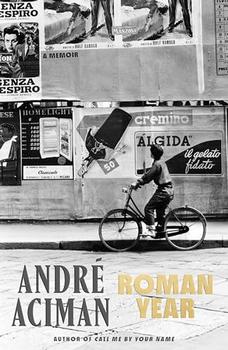Summary | Excerpt | Reviews | Beyond the Book | Readalikes | Genres & Themes | Author Bio

Okay. This is the worst. Somewhere in the middle: old enough for people to really get to know him, young enough to not be a drunk-driving idiot.
While the men are occupied with their crying, I reach quietly into the bottom left-hand desk drawer where I keep my secret At Need stash of York Peppermint Patties and manage to get a fistful of them discreetly unwrapped and into my mouth. Desperate times.
The father and the other guy, the helper, go through the last half of the office box of Kleenex. It is a cube-shaped box with vivid sunset scenes, red and deepest orange on all four sides, black silhouettes of birds taking flight. There are about a hundred more just like it in the supply closet. I make a mental note to ask Wade about getting some less depressing tissue boxes. My God.
Being a witness to people's unyielding anguish feels so intrusive, but lately I have had some measure of success avoiding sponging their agony and giving myself the voyeurism creeps by focusing on things like making guesses at the headstone choice (mostly granite) and being really detailed about the paperwork. I tend to offer tissues with my left hand, my right hand busy filling out forms and arranging graveside services. I keep the men talking, which suspends the crying and keeps things moving, because the sooner I can get them filled out, scheduled, and paid, the sooner they can go home and I can get back to Ovid. Because I have a quiz tomorrow.
And now the thing I almost hate the most: The Walk. To find a nice grave site. Between the stones, beneath what feels like millions of tall pines, I take shallow breaths, wipe my sweaty palms on my jeans, and keep my eyes straight ahead, never on the stones. I concentrate hard on getting this part over with, give the men general suggestions with the maps and my own personal opinion; for example, Sierra Sunset is badly named, as it faces east. (Everyone involved at the time knew this, but once he gets his mind made up, you can't tell Wade anything.) Poppy Hill. Peaceful Glen. Serenity Valley.
Eventually it is decided that the ten-year-old will be taking his final rest in row M, space 22, halfway up Sunny Hill. (Perpetually shady. Seriously, Wade.) It has a decent view of the duck pond and is near enough to the gravel path that the grandparents can make the hike when they come visit, which even after just four months on the job I can tell you with absolute certainty they will. Maybe daily at first. They will hang wind chimes in the trees and cheap made-in-China dream catchers bought at Longs Drugs, which bear no resemblance to the actual Native American totems they are impersonating. They will heap the grave with flowers and letters and helium balloons, Monopoly boards open and set up for play, the top hat resting forever on Free Parking, ceramic bears with ceramic tears and sad faces who hold up signs reading "I Wuv You" and "Miss You Tons!" as if the kid has gone away to be a foreign exchange student for a semester instead of having died quickly but horribly from some ridiculous bone cancer they never even knew he had until a month before he died.
At Need.
They will picnic on the grave and talk to it, and after a couple of months they will come every week, then every six weeks, then every holiday, then probably only every Christmas or birthday, and after a while it will just be a grave.
At last we are back in the office.
In my book of maps, I fill in the boy's name on the little rectangle representing his buried casket. I write in careful block print, in pencil, in case they change their minds. I double-check my math, and then the most gruesome part of all: I announce the total cost. I explain payment-plan options and full payment discounts. Nearly two dozen graves I've sold, mostly Pre-Need but even then it turns my stomach and feels remarkably like collecting school fund-raising walkathon pledges. The embarrassment of asking neighbors for donations in the first place, then the humiliation of knocking on doors to inform Mrs. Nerwinski: I walked three and a half miles, and according to your generous pledge of seventy-five cents per mile, that comes to a total of . . . "Two thousand, seven hundred dollars." Standard lawn grave, At Need, single depth, cement liner, midweek graveside service, Wednesday's Child Is Full of Woe, and the bronze headstone with five super-expensive extra lines of engraving. Dumb poem.
Excerpted from Six Feet Over It by Jennifer Longo. Copyright © 2014 by Jennifer Longo. Excerpted by permission of Random House. All rights reserved. No part of this excerpt may be reproduced or reprinted without permission in writing from the publisher.




A classic is a book that has never finished saying what it has to say
Click Here to find out who said this, as well as discovering other famous literary quotes!
Your guide toexceptional books
BookBrowse seeks out and recommends the best in contemporary fiction and nonfiction—books that not only engage and entertain but also deepen our understanding of ourselves and the world around us.